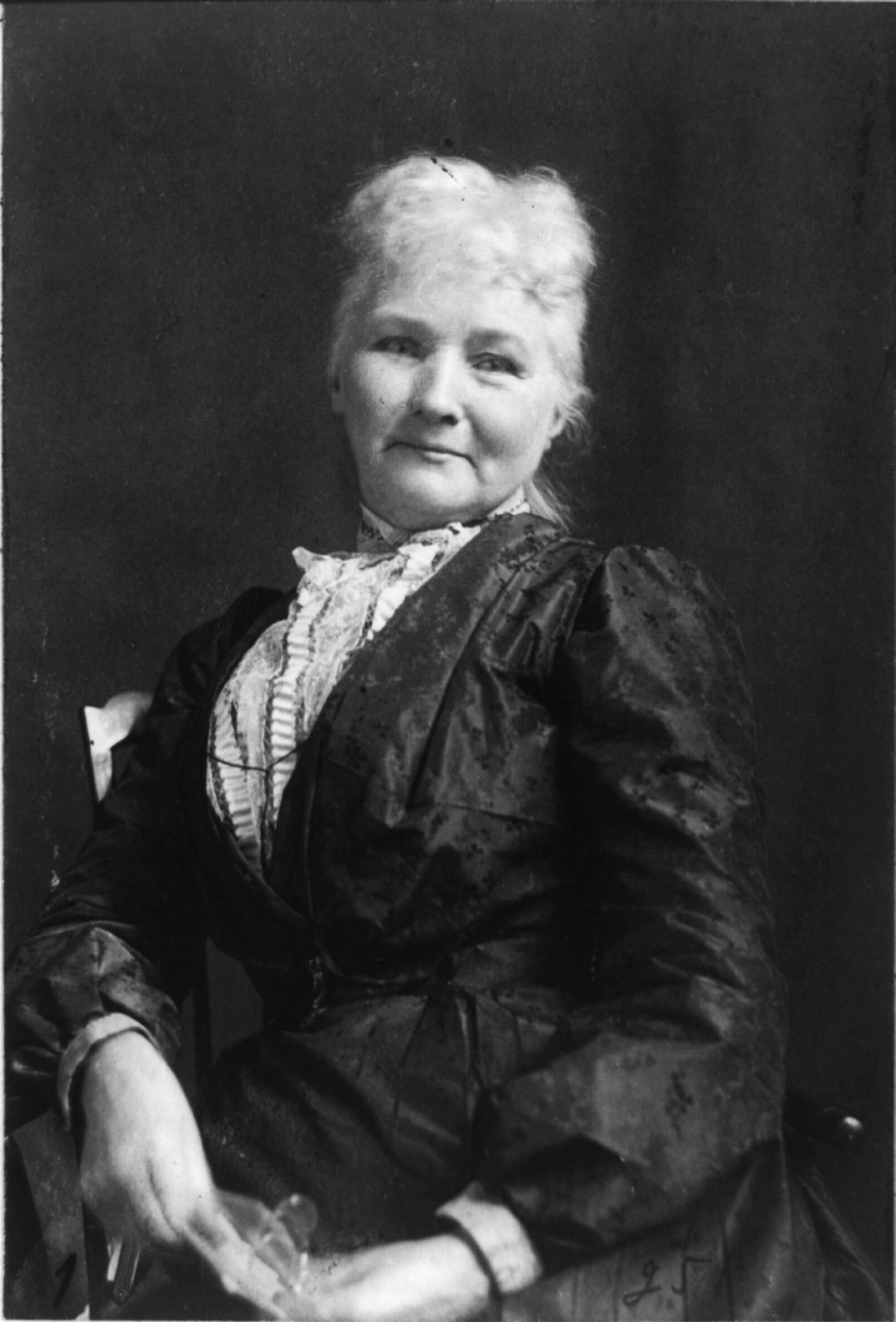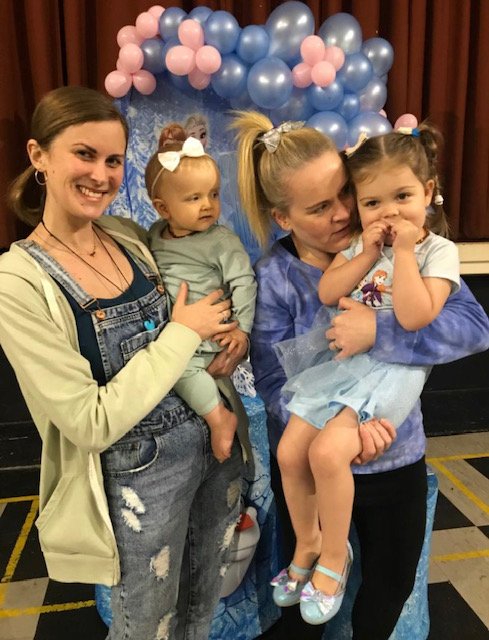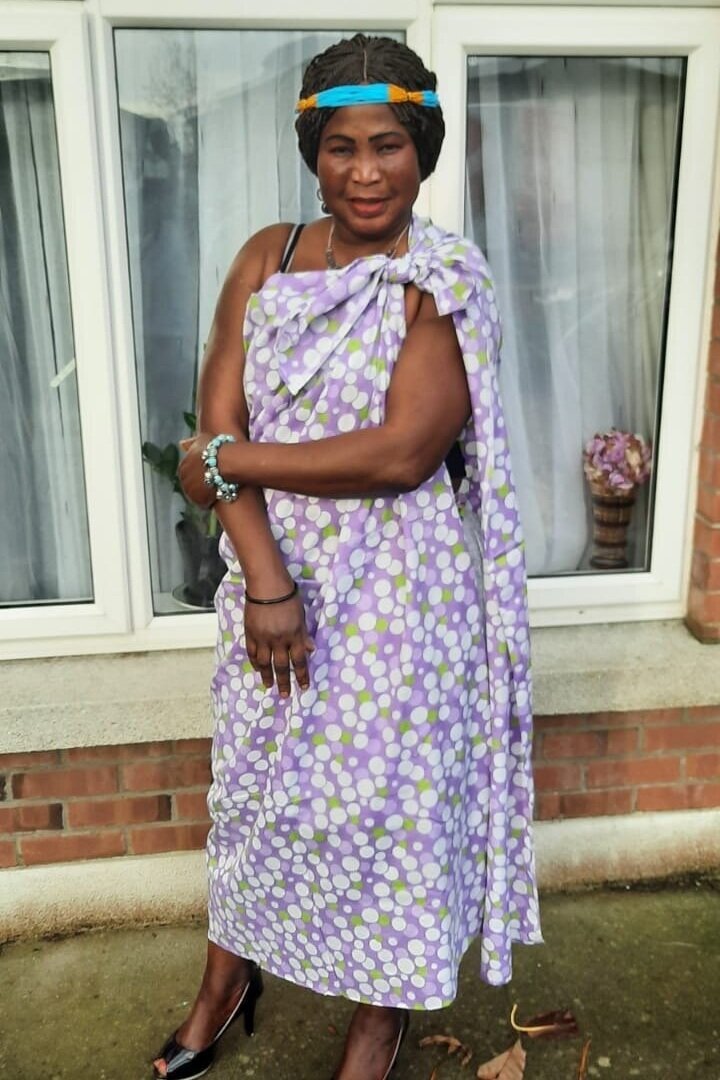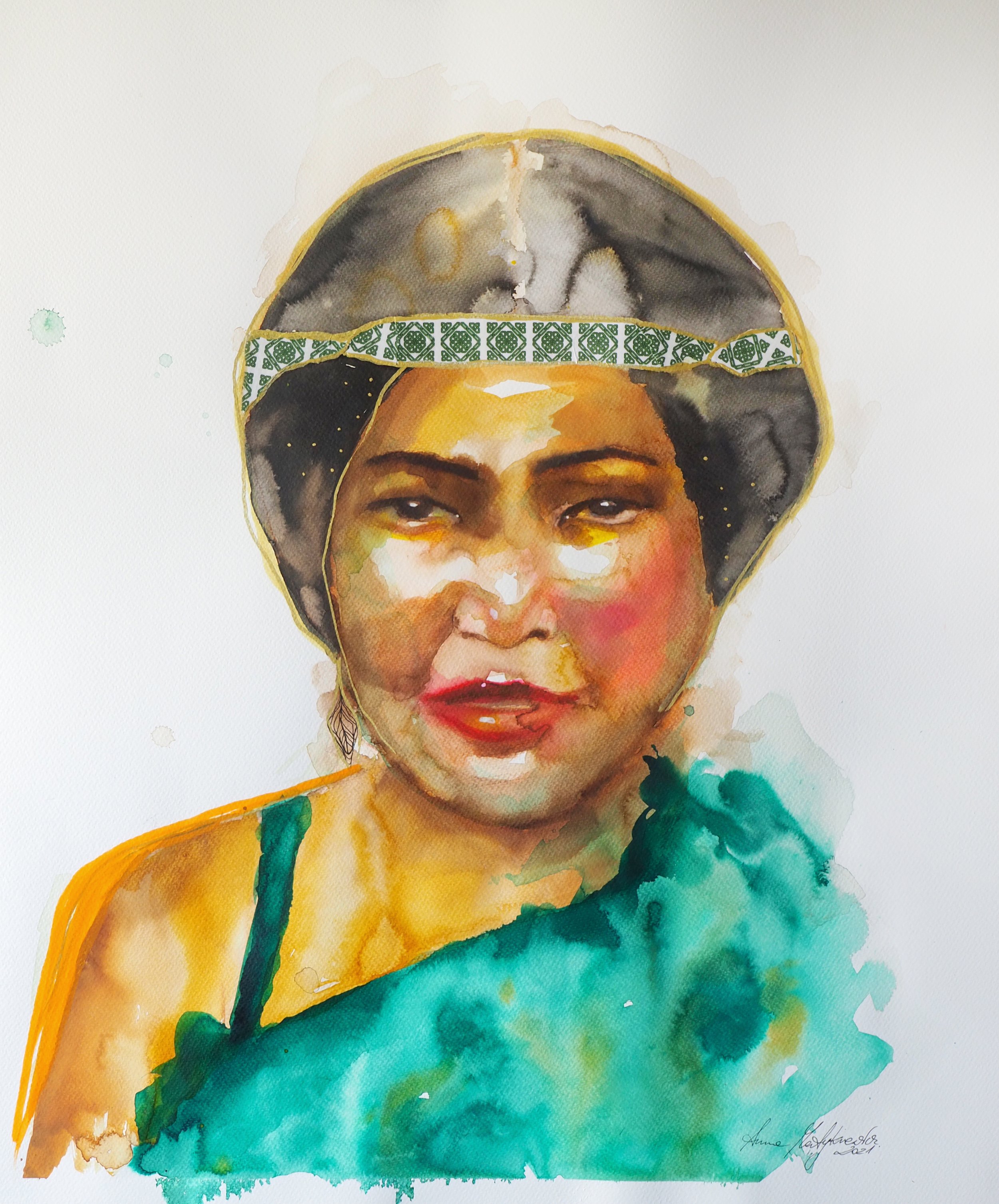Mothers of the World
On Mother’s Day, Herstory celebrates mothers of the past and present, maternal bonds, and mothers of social movements. Motherhood is complex and comes in all shapes and sizes. You don’t have to give birth to be a mother. Today we are spotlighting powerful and inspirational stories researched by Katelyn Hanna.
TW: racism, abuse, sexual abuse, homophobia
Mary Harris aka ‘Mother Jones’ (c. 1837 - 1930)
Source: Wikipedia
Born in Cork in about 1837, Mary Harris would go on to be known as one of the most dangerous women in America!
Mary and her family emigrated to Canada during the Famine when she was still a little girl. As a young adult, she moved to the United States and spent some time working as a teacher before taking up a job as a seamstress. In 1861, she married Robert Jones and together they had four children but tragically, her entire family died six years later during a yellow fever epidemic in 1867. Mary moved back to Chicago where she’d spent time before her marriage, and there set up her own shop only for it to be burned down along with all her possessions during the great Chicago Fire of 1871.
Despite these seemingly insurmountable blows, Mary helped to rebuild the city and from there, began her labour activism. Over the next few decades, she was an avid ‘union organiser [...] and a campaigner against child labour in America. Her cry would be: “Pray for the dead and fight like hell for the living.”’ She was widely known for her oratory skills, capable of rallying large numbers of strikers.
Source: UAW
In 1903, spurred on by the atrocious treatment of children workers, Mother Jones organised and led a ‘children’s march’ from Philadelphia to President Theodore Roosevelt’s home in New York, but he refused to see her. Ten years later, Mother Jones was convicted of ‘conspiracy to commit murder’ for her part in a strike the year before, but her sentence of 20 years imprisonment was commuted following campaigning from her supporters. She continued to support strikers right up until her death in 1930. She is buried in the Miner’s cemetery in Illinois and still remembered today as a heroic voice for the working class and children.
“There’s no way to be a perfect mother and a million ways to be a good one.”
— Jill Churchill
Jane Wilde, aka “Speranza” (1821-1896)
We’ve all heard of Oscar Wilde, but have you heard of his mother, Jane, who was an accomplished writer in her own right and influenced Oscar’s poetry? Born in 1821, Jane was just 3-years old when her father died and despite being largely self-taught, she is said to have become a polyglot - with fluency in up to ten languages! It was during the Famine when she began to contribute prose and poetry to The Nation - an Irish nationalist newspaper edited by Charles Gavan Duffy - under the name ‘Speranza.’ She even became co-editor for a time when Gavan Duffy was imprisoned. Jane was an advocate of women’s rights too, and campaigned for improved education for women. From the 1850s, her time was largely spent raising her three children: William, Oscar and Isola, but nonetheless, she continued writing and moving in literary circles.
The 1860s was a difficult decade for the Wildes. It began with a successful court case brought against Jane (and her husband) for libel, and this was followed by the sudden death of their daughter from fever in 1867 which ‘neither parent ever recovered from.’ When Jane’s husband died in 1876, she moved to England where she continued to write and publish her work into the 1890s. By then, however, her financial situation was pretty dire and she lived with her eldest son and his family in poverty, trying to supplement their income with her writing. Any help from her other son, Oscar, stopped when he was imprisoned in 1895.
Jane contracted bronchitis the following year and, dying, asked to see Oscar, but the request was refused and she died in February of that year and was buried in common ground. 100 years later, in 1996, a plaque memorializing her was added to the gravestone of her husband and read:
‘Speranza of The Nation, writer, translator, poet and nationalist, author of works on Irish folklore, early advocate of equality for women, and founder of a leading literary salon.’
“There was never a child so lovely but his mother was glad to get him to sleep.”
—Ralph Waldo Emerson
Alberta Williams King (1904-1974)
Mrs. Alberta Williams King (left) with her son, Dr. Martin Luther King Jr. and daughter-in-law, Coretta Scott King. TONY CAMERANO/AP
Alberta Williams King was born in Atlanta, Georgia in 1904. As a young woman she worked for a short time as a teacher, until her marriage to Martin Luther King I in 1926 forced her to quit her position (married women in Georgia were prohibited from working in certain jobs). Over the next few years she had three children: Willie Christine King, Martin Luther King Jr., and Alfred Daniel Williams King I. She was actively involved in her community as ‘organiser and president of Ebenezer Women’s Committee, organist for the Women’s Auxiliary of the National Baptist Convention, and active in the National Association for the Advancement of Colored People (NAACP), Women’s International League for Peace and Freedom, and Young Women’s Christian Association (YWCA).’
From the very outset, Alberta instilled ‘a sense of self-respect within her three children’ and had a strong influence on their ‘moral development.’ Martin Luther King Jr. later talked of her teachings, writing that ‘...she tried to explain the divided system of the south … as a social condition rather than a natural order. She made it clear that she opposed the system and that I must never allow it to make me feel inferior. Then she said the words that almost every Negro hears before he can yet understand the injustice that makes them necessary: ‘you are as good as anyone.’’
Alberta’s influence on her children, particularly that of one of the most prominent leaders in the civil rights movement in America - Martin Luther King Jr. - cannot be understated. She was an activist in her own right, and passed on her teachings to her children, supporting them at every turn.
Bob Fitch photography archive, © Stanford University Libraries
Tragically, like her son, Alberta was assassinated. In 1974, just as she finished playing the organ in her church, a young man stood up and fired into the congregation, stating that ‘All Christians are my enemies.’ She was rushed to the hospital where she died, aged 69.
“Having kids—the responsibility of rearing good, kind, ethical, responsible human beings—is the biggest job anyone can embark on.”
— Maria Shriver
Josephine Baker (1906-75)
Josephine Baker was born Freda McDonald in Missouri in 1906. At just 8-years-old, she began her working life as a ‘live-in domestic for white families’ and at 11 in 1917 she was witness to the East St. Louis riots that left over 100 black people murdered and thousands homeless through violence perpetrated by white Americans. Around this time, Josephine began to seriously ‘embrac[e] her talents as a way out of discrimination and poverty.’ Two years later she was in New York dancing in Vaudeville shows, and is now considered a major contributor to the Harlem Renaissance of the time. In 1925, she moved to Paris where she became ‘one of the most sought-after performers’ and later one of ‘the first African American wom[e]n to star in a motion picture.’ During WWII, she aided the French resistance by passing on Nazi secrets she heard while performing in front of them and after the war, she returned to the US where she often refused to perform in front of segregated crowds. In 1963, she spoke at the March on Washington, saying:
"You know, friends, that I do not lie to you when I tell you I have walked into the palaces of kings and queens and into the houses of presidents. And much more. But I could not walk into a hotel in America and get a cup of coffee, and that made me mad.”
In the 1950s and 60s Josephine adopted 12 children from different countries around the world in what she called ‘an experiment in brotherhood’ to ‘show that racial and cultural harmony could exist.’ She called them her ‘rainbow tribe.’ Unfortunately though, Josephine wasn’t very present - she continued touring, sometimes taking the children with her - but oftentimes, they were at home with their adoptive father (until he moved to Argentina in 1964). When she was there, the children were, from time to time, dressed up and ‘put on display’ for guests to prove that people of different nationalities and ethnic backgrounds could get along. When her son Jari was 15, Josephine discovered that he was gay and sent him away to live with his father, despite her having relationships with both men and women throughout her own life. Asked in 2009 if Jari forgave his mother, he responded ‘Yes, who cares. She didn't want us to grow. Maybe she was afraid that we would out-grow her. It was like being liberated.’ Josephine’s eldest son Akio, when asked if it was right for Josephine to adopt so many children, replied ‘She was a great artist, and she was our mother. Mothers make mistakes. Nobody's perfect.’
“Motherhood was the great equalizer for me; I started to identify with everybody.”
— Annie Lennox
Ranae Von Meding
When Ranae became pregnant in 2016 with her and her wife Audrey’s first baby, they didn’t expect that their child would be born unequal to other children in the eyes of Irish law. But when Ava was born, only one of her parents was allowed to be recorded on her birth certificate. Even though Audrey is Ava’s biological mother, only the birth mother - Ranae - was recognised, by law, as her parent. What this meant was that:
Audrey could not sign any forms to open a bank account for Ava and Ava was not allowed to inherit anything from Audrey or Audrey’s parents
Audrey was not allowed to consent to any medical treatment that Ava may need such as a blood transfusion, vaccinations or any surgery.
Audrey was not listed as her child’s parent and would only have been able to be listed on school forms as a ‘responsible adult’ who is allowed to collect her (but first she would have had to have been given consent from Ranae to do this)
Audrey was not allowed to travel with Ava without the written consent of Ranae.
Later, at a playgroup for children of LGBT+ parents, it was decided to start campaigning for change, and in 2019, after the birth of their second daughter Arya, they co-founded Equality for Children. For months they lobbied politicians, collected signatures on a petition, held demonstrations and publicized their fight through blog posts and the media.
In 2020, the Children and Families Relationship Act was brought in, but it was only life changing for some families. As Ranae explains, ‘If a child is born to two women, and meets all the criteria then they can have a claim to both of their parents. In order to meet that criteria, the child has to be conceived in a fertility clinic in Ireland, with an identifiable sperm donor that goes on a registry, and then that child has to be born in Ireland.’ Thankfully, with this new legislation, Audrey could be recognised as Ava and Arya’s parent alongside Ranae, after a somewhat delayed court process.
However that’s not the end of the story for Ranae and Audrey. At the beginning of this year (2023) they decided to grow their family again, and returned to Portugal to use their remaining embryos from their previous IVF. They were successful and Ranae is currently pregnant with their 3rd child. However, because their baby was conceived outside of Ireland, after the 2020 Act was commenced, when born, their youngest child will be treated differently to their two older sisters. Ranae will once again be in the position where she is viewed as a single parent and Audrey will be a legal stranger to her own genetic child.
There are countless other LGBTQ+ families who are not covered by this Act, which is why Ranae and other couples are continuing the campaign for equality: ‘...for male couples there's nothing. Same-sex male couples or heterosexual couples, or a single person who goes through surrogacy - they're not in any way covered. That's what we're fighting for at the moment, legislation around surrogacy, retrospective recognition for kids already born through surrogacy, and then covering all the other same-sex female families who are left out of any legislation. So, that includes kids who are conceived in a clinic abroad, children who are born abroad, children who are conceived in a non-clinical setting.’
Learn more about the campaign here.
"Having children just puts the whole world into perspective. Everything else just disappears."
— Kate Winslet
Margaret Stephen
Born in 1972 in Sudan, Margaret Stephen was separated from her mother as a teenager due to the outbreak of war and forced into marriage with a soldier at 16. Early in her pregnancy, Margaret’s husband had to ‘go off to fight’ and she was left on her own: ‘There were no cars or transport anymore, so people were walking for about two weeks to get into town. My mother was telling people who were coming in to please find me and look after me. So, a few people found me, and I went with them back home and I had the baby with my mother beside me.’
In 1994, Margaret was at the border of Uganda and Sudan. She had TB, and was there for treatment with her son and younger brother when fighting broke out again. She sent the two children across the border with her mother to escape the violence while she recuperated, before swimming across the Nile to join them.
Margaret by Anna Matykiewicz
The family stayed in Uganda in a refugee camp for about 14 years. In that time, Margaret remarried and her new husband began the process of getting them to America. Sadly, it never worked out because a small group of people had stolen their forms and went to America under their name. To make matters more desperate, Margaret’s new husband deserted her and her young son and left them to fend for themselves in the camp: ‘Everyone knew I was alone and anyone passing by looking for sex or for a fight could break in and did.’
When the civil war in Sudan ended in 2005, the Sudanese inhabitants were told to go home, but as Margaret pointed out, ‘we’d been in the camp so long that we didn’t have anyone back in Sudan anymore. Where were we going to go?’ So, along with a handful of other women, she fought for the right of Sudanese people to remain in the camp where they could work to find a home elsewhere. She also fought to establish an office in the camp where refugees could go to fill out their forms, rather than having to travel to the nearest town and ‘sleep on the streets there’ while their applications were being processed.
Now in Ireland, Margaret is recovering and living her life. ‘Being a migrant changed my life. Back in Africa you work so hard just to find food and survive, and your mind gets blocked, but since I’ve come to Ireland, I’ve learned new things and my memories have begun to come back.’
Read Margaret’s full story, in her own words, here.
“Women do not have to sacrifice personhood if they are mothers. They do not have to sacrifice motherhood in order to be persons. Liberation was meant to expand women's opportunities, not to limit them. The self-esteem that has been found in new pursuits can also be found in mothering.”
— Elaine Heffner
Mothers of Women’s Rights in Ireland - the National Women’s Council
In 2023, the National Women’s Council (NWC) celebrates its 50th anniversary. Founded in 1973, the NWC is the leading national representative organisation for women and women’s groups in Ireland. Originally called the Council for the Status of Women (CSW), it was founded by a group of feminists, and chaired by Hilda Tweedy of the Irish Housewives Association, with the goal of gaining equality for women. It wasn’t until 1979 that the CSW ‘got its first grant from the government. Its projects included managing the National Women's Talent Bank and hosting the National Young Women's Forum.’ Throughout the 1990s, ‘its activities included supporting projects funded by the European Social Fund, and running Women and Leadership Programmes’ and forums, and in 1995 it changed its name to the National Women’s Council of Ireland. Since then, the NWC has built its membership to include 160 groups, with a ‘growing concentration on marginalised women, poverty, violence against women and social partnership.’ In the past number of years, the NWC, and the women who make up the team, board and collaborators, has led the way on issues to ‘improve access to contraception and abortion, guarantee sex education for all schools, and end violence against women.’
‘We will not stop until women can have children without fearing financial punishment, until women and girls no longer have to fear sexual violence or exploitation, and until the contribution of women to society via care work is recognised and remunerated.’
Learn more about the NWC and sign up for their newsletter here.
“The fastest way to break the cycle of perfectionism and become a fearless mother is to give up the idea of doing it perfectly—indeed to embrace uncertainty and imperfection.”
— Arianna Huffington
Want to further explore the mothers in your family tree? Why not check out our handy guide to researching your family tree and get started!
Sources:
Mary Harris aka ‘Mother Jones’
McGinley, John Joe, ‘Mother Jones: ‘the most dangerous Irish woman in America’,’ on The Irish Story, online at: https://www.theirishstory.com/2021/11/02/mother-jones-the-most-dangerous-irish-woman-in-america/#.ZAG7BnbP3IU [accessed 3 Mar. 2023].
Jones, Mary, The Autobiography of Mother Jones (1925).
‘Jones, Mary Harris (‘Mother Jones’),’ on DIB, online at: https://www.dib.ie/biography/jones-mary-harris-mother-jones-a4333 [accessed 3 Mar. 2023].
Jane Wilde
Edwards, Owen Dudley, ‘Wilde, Jane Francesca Agnes (‘Speranza’)’ on Dictionary of Irish Biography, online at: https://www.dib.ie/biography/wilde-jane-francesca-agnes-speranza-a9035 [accessed 22 Feb. 2023].
McHugh, Connell, ‘Who was Jane Wilde? Mother of Oscar Wilde born 200 years ago today,’ on The Irish Post, online at: https://www.irishpost.com/life-style/who-was-jane-wilde-mother-of-oscar-wilde-born-200-years-ago-today-226604 [accessed 22 Feb. 2023].
Haverty, Anne, ‘The other woman in the other Wilde case: The Diary of Mary Travers – A Novel,’ in The Irish Times, online at: https://www.irishtimes.com/culture/books/the-other-woman-in-the-other-wilde-case-the-diary-of-mary-travers-a-novel-1.1931889#:~:text=In%20the%20earlier%20case%20Jane,and%20chastity%20had%20been%20impugned. [accessed 22 Feb. 2023].
Donovan, Katie, ‘Like Mother, Like Son,’ in The Irish Times, online at: https://www.irishtimes.com/culture/like-mother-like-son-1.26539 [accessed 22 Feb. 2023].
Alberta Williams King
Morris, Sonya, ‘ALBERTA CHRISTINE WILLIAMS KING (1904-1974),’ on BlackPast, online at: https://www.blackpast.org/african-american-history/people-african-american-history/alberta-christine-williams-king-1904-1974/ [accessed 24 Feb. 2023].
‘King, Alberta Williams,’ on Stanford University, online at: https://kinginstitute.stanford.edu/encyclopedia/king-alberta-williams [accessed 24 Feb. 2023].
Tharpe, Stephanie, ‘The Historic Power Woman Behind The Dream: Alberta Williams King,’ on Forbes, online at: https://www.forbes.com/sites/forbestheculture/2021/01/18/the-historic-power-woman-behind-the-dream-alberta-williams-king/?sh=66de35f47d9b [accessed 24 Feb. 2023].
Malaika Tubbs, Anna, ‘Alberta King, Martin Luther King Jr.'s Mother, Made Her Own Contributions to Civil Rights,’ on Time, online at: https://time.com/5928623/martin-luther-king-jr-mother-alberta-king/ [accessed 24 Feb. 2023].
Josephine Baker
Whitaker, Matthew C., Icons of Black America: Breaking Barriers and Crossing Boundaries, (2011), p. 64.
Keyes, Allison, ‘The East St. Louis Race Riot Left Dozens Dead, Devastating a Community on the Rise,’ in the Smithsonian Magazine, 2017. Online at: https://www.smithsonianmag.com/smithsonian-institution/east-st-louis-race-riot-left-dozens-dead-devastating-community-on-the-rise-180963885/ [accessed 21 Feb 2023].
‘Harlem Renaissance’ on History, online at: https://www.history.com/topics/roaring-twenties/harlem-renaissance [accessed 21 Feb 2023].
‘Josephine Baker’ on Britannica, online at: https://www.britannica.com/biography/Josephine-Baker [accessed 21 Feb. 2023].
Norwood, Arlisha R., ‘Josephine Baker’ on National Women’s History Museum, online at: https://www.womenshistory.org/education-resources/biographies/josephine-baker [accessed 21 Feb. 2023].
‘Josephine Baker’ on National Museum of African American History & Culture, online at: https://nmaahc.si.edu/josephine-baker [accessed 21 Feb. 2023].
Theile, Von Merlind, ‘Josephine Baker's Rainbow Tribe’ on Spiegel International, online at: https://www.spiegel.de/international/zeitgeist/adopting-the-world-josephine-baker-s-rainbow-tribe-a-652613.html [accessed 21 Feb. 2023].
Ranae Von Meding
Von Meding, Ranae, ‘Marriage Equality and what it means for your family’ on Ranae Von Meding, online at: https://www.ranaevonmeding.com/post/marriage-equality-and-what-it-means-for-your-family [accessed 23 Feb. 2023].
McKenna Barry, Sarah, ‘Ranae von Meding: "This is for our children, and all children who are like them”,’ on Her.ie, online at: https://www.her.ie/life/ranae-von-meding-digital-cover-556925 [accessed 23 Feb. 2023].
Dunne, Peter, ‘Campaigner Ranae von Meding achieves parental rights for wife after five-year battle,’ on GCN, online at: https://gcn.ie/ranae-von-meding-parental-rights-wife/ [accessed 23 Feb. 2023].
Margaret Stephen
‘Margaret Stephen and Sally Mulready OBE,’ on Herstory, online at: https://www.herstory.ie/movementblog/2021/5/7/7-margaret-amp-sally [accessed 28 Feb. 2023].
National Women’s Council
‘Our History,’ on NWC, online at: https://www.nwci.ie/discover/about_us/our_history [accessed 28 Feb. 2023].
‘50 Years of NWC,’ on NWC, online at: https://www.nwci.ie/discover/about_us/50_years_of_nwc [accessed 28 Feb. 2023].












